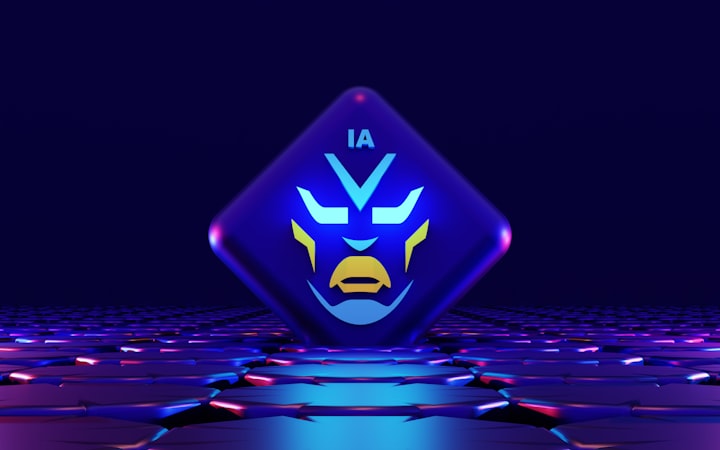ChatGPT vs. Bard: The Battle for AI Supremacy - A Deep Dive for C-Suite Leaders
The Future of Language is at Stake: ChatGPT vs. Bard - The Ultimate showdown

The field of Artificial Intelligence (AI) is evolving at a breakneck pace, and language models are at the forefront of this revolution. Two players, ChatGPT and Bard, have emerged as prominent contenders in this arena, capturing the attention of businesses and individuals alike. But which one reigns supreme? In this comprehensive analysis, we'll delve into the capabilities, strengths, and weaknesses of both models, offering valuable insights for high-level executives like you.
Understanding the Contenders: A Comparative Analysis
ChatGPT - The Prolific Pioneer
Developed by OpenAI, ChatGPT boasts a massive dataset of text and code, enabling it to generate creative text formats, translate languages, and write various content types. Its key strengths include:
- Impressive fluency and coherence: ChatGPT's text output often appears human-written, engaging readers with natural-sounding language.
- Versatility across multiple tasks: From writing poems to translating documents, ChatGPT's adaptability across diverse tasks is highly attractive.
- Active community and development: With significant community support and ongoing development, ChatGPT is constantly evolving.
Limitations of ChatGPT:
- Factual accuracy concerns: ChatGPT's reliance on large datasets sometimes leads to factual inconsistencies and unreliable information.
- Bias and ethical considerations: As with any AI model, potential biases within the training data can be reflected in outputs, requiring careful monitoring.
- Limited reasoning and analytical capabilities: While adept at generating text, ChatGPT struggles with complex reasoning and data analysis tasks.
- Factual accuracy and grounding: Bard leverages Google's vast knowledge base and search capabilities, ensuring factually accurate and well-grounded outputs.
- Reasoning and analytical prowess: Bard demonstrates stronger reasoning and analytical abilities, handling complex tasks and drawing data-driven conclusions.
- Integration with Google ecosystem: Seamless integration with Google products and services offers additional potential for businesses already invested in the Google ecosystem.
- Relative infancy: Being newer, Bard currently lags behind ChatGPT in terms of community support and available resources.
- Lower output creativity: While factually accurate, Bard's text generation can sometimes lack the creative flair and fluency of ChatGPT.
- Limited transparency: Unlike ChatGPT's open-source approach, Bard's inner workings are less transparent, making it harder for developers to adapt and customize.
- Task-specific requirements: Identify your primary use case. Does fluency and creativity trump factual accuracy for your needs?
- Integration considerations: Seamless integration with existing tools and workflows can be a deciding factor.
- Ethical and bias concerns: Evaluate each model's potential for bias and ensure alignment with your ethical values.
- Future-proofing your decision: Consider the ongoing development trajectory of each model and their potential for growth.
- Identifying opportunities for innovation: AI language models can automate tasks, analyze data, and generate creative content, potentially revolutionizing your business operations.
- Addressing potential challenges: Be aware of ethical considerations, data privacy concerns, and potential workforce disruptions associated with AI implementation.
- Shaping the future of AI: Through responsible adoption and guidance, leaders like you can influence the responsible development and application of AI for the benefit of society.
Bard - The Google-Backed Challenger
Launched by Google AI, Bard utilizes a scaled-down version of its powerful LamMDA model. It excels in areas like:
Bard limitations
Deciding the Victor: It's More Than Just Technology
Determining a clear winner in this ongoing "battle" is an oversimplification. The choice between ChatGPT and Bard depends on your specific needs and priorities as a high-level leader. Consider these factors:
Beyond the Battlefield: The Future of AI Language Models
The competition between ChatGPT and Bard is merely a microcosm of the broader AI landscape. This constant innovation fuels progress, ultimately leading to more advanced and beneficial language models. As C-suite leaders, staying informed about these advancements is crucial to:
Conclusion: Choose Wisely, Lead Confidently
The "battle" between ChatGPT and Bard is captivating, but the real victory lies in understanding and utilizing these tools strategically. Remember, the optimal choice depends on your unique needs and vision. By carefully considering your requirements and remaining attuned to the evolving AI landscape, you can leverage these powerful language models to drive innovation, enhance efficiency, and shape a brighter future for your organization.





Comments (1)
This article is fantastic—I appreciate its well-crafted and informative nature.